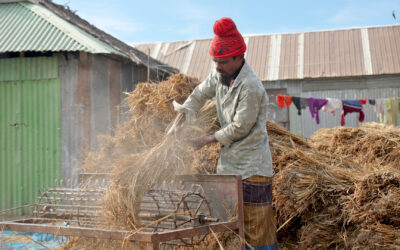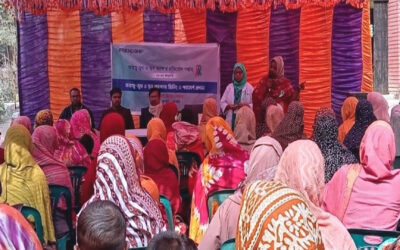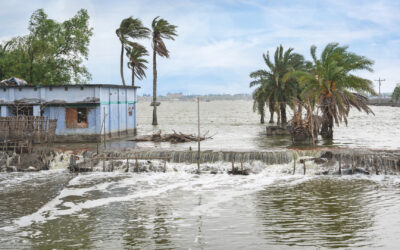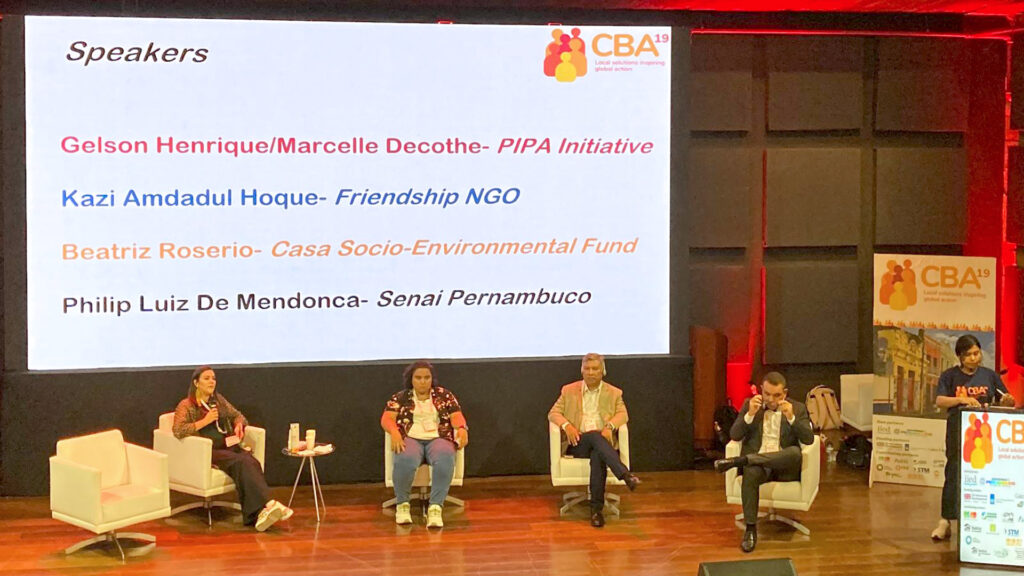
by Friendship News Desk,
27 May, 2025
The 19th International Conference on Community-Based Adaptation to Climate Change (CBA19) was held in Recife, Brazil from 12-16 May 2025. The event served as a lead-up to the upcoming COP30 in Belem, Brazil.
Held for the first time in South America, CBA19 focused on putting the principles of locally-led adaptation (LLA) into practice. Participants shared ideas, validated concepts, raised concerns, and explored tactical and financial challenges in sustainable adaptation. Kazi Amdadul Haque, Senior Director and Head of Climate Action, and Stéphane Van Haute from Friendship Luxembourg attended CBA19 as Friendship delegates and contributed actively in several sessions at the event. Their overall perspective on the CBA mindset and its dynamic in a climate-changing world was published in the Dhaka Tribune (read also here).
Session 2C: Financing for locally led nature-based adaptation (bridging investment, communities and policy)
In this session, NGOs and civil society shared community-focused experiences from Latin America, Africa, and South Asia. While service delivery and donor dynamics often cause frustration, the platform fostered support and ideas for improvement.
Kazi Amdad highlighted that a lack of proactive local government measures can hinder climate action. Recognising the varied capacities of different stakeholders, he pointed out the need for informed, inclusive funding that empowers communities to decide how best to use their resources. He prioritised the need for predictable funding, i.e. projecting community crisis and ensuring adequate funding.
Session 4A: Alternative Financial Mechanisms to Promote Inclusion and Action at the Community Level
This session used Friendship’s ‘Reversing the Flow’ (RtF) project as a case study to explain how communities can successfully navigate adaptable solutions independently with confidence, self-esteem, and enhanced capacity.
Funded by the Dutch organisation RVO, RtF engages 20 remote char island communities in Gaibandha. Community Implementation Committees (CICs) from these villages conduct needs assessments, implement projects, and manage their funds. A Steering Committee (SC) of village representatives review CIC proposals to ensure a democratic process. Funds are transferred directly to the community account, with Friendship stepping in only for training or facilitation when needed. They independently select leaders and implement projects on landscaping, water security, and livelihoods. They also decide which projects to defer, share or cancel among themselves.
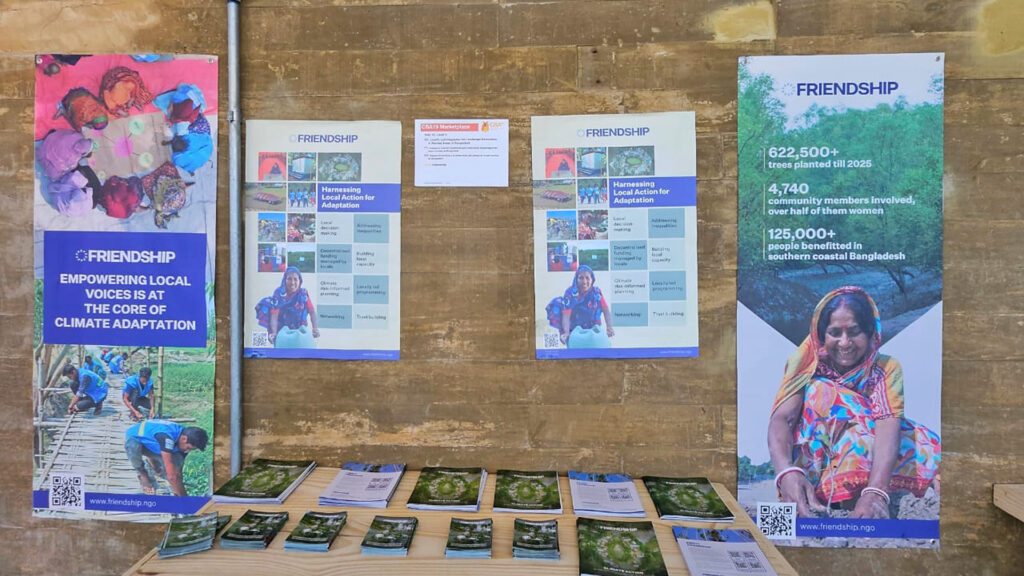
Session 6C: Mangroves’ superpowers for LLA – a cross-learning session across three continents for communities’ resilience
This session featured mangrove restoration efforts from Bangladesh, Brazil, Ghana, and Indonesia. Kazi Amdad shared that mangrove interventions should go beyond plantations to include holistic coastal development that protects communities from climate threats like tidal surges and cyclones.
Friendship’s community-led mangrove afforestation project is a good example. Locals, mostly women, handle everything from land mapping to nursery management. Trained to lead the project, recruit others, and run livelihood initiatives, these communities have also partnered with the local government and the Bangladesh Forest Department to design and advance mangrove restoration—an exemplary model of locally-led adaptation.
Session 10A-4: Lightning Talks – Financing Adaptation at the Local Levels
In this lightning talk round, Kazi shared how the spirit of localisation is still quite invisible due to the existing challenges such as the lack of trust, transparency, and flexibility. In the case of Friendship, he pointed out these very factors helped create an enabling environment in which Friendship was able to respect community needs and prioritise their voices globally. He mentioned how the Government of Luxembourg allowed for Friendship Bangladesh to frame and activate the CIDRR (Community Initiated Disaster Risk Reduction) approach since 2014.
The whole idea is that the communities assess their situation, design, and evaluate their actions themselves, hence the name of the programme. This initiative connected diverse groups of people, from children to the elderly and disabled. The method uses pictorial observation and interaction which enable even illiterate people to be part of the process. This is a great example of localisation, empowering local organisations and inspiring self-esteem in the communities.
CBA recognises that climate impacts are global, not country-specific. It is vital to highlight initiatives grounded in local realities worldwide. Projects like CIDRR, RtF, and Friendship’s mangrove afforestation exemplify community-led action supported by locally managed funding and decision-making.

